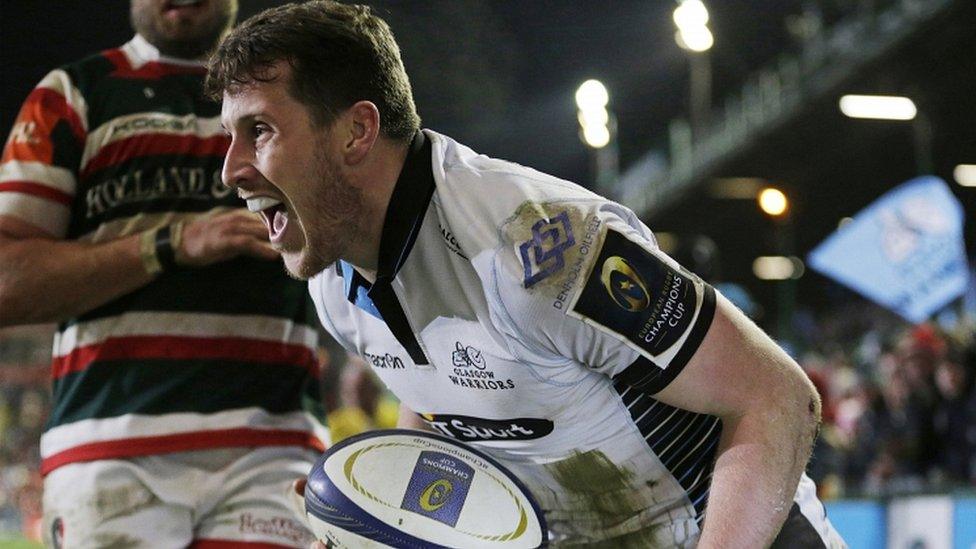Leicester 0-43 Glasgow: Warriors building towards something special
- Published
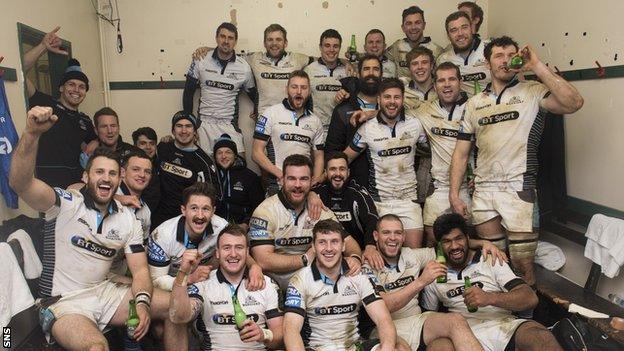
Glasgow players celebrate after their emphatic victory over Leicester
In the preamble to Saturday's final Pool 1 match at Welford Road, there was much for Glasgow to be spooked about. There were portents of doom that hung about the place like death-eaters to their dream of European Champions Cup progression.
There was the home record of opponents Leicester - beaten just once on their own turf in a decade in the Heineken Cup or Champions Cup. There was that pearler about Fettes College being the last Scottish team to win here - in 1905.
There was the knowledge that, in this competition's history, Leicester had won five from five against teams from north of the border - with an average winning margin of 36 points - and the jaw-dropper that Glasgow had lost 16 of their last 17 European games on English soil.
For some, bearing the scars of previous eras, there was the memory of the 90 points Leicester scored against Glasgow in the tournament 20 years ago, a ritual slaughter Welford Road hadn't seen before or since. Well, not until Saturday evening.
On a night of nights for Glasgow rugby, there was an array of snapshots that told the significance of what happened. On the field, there was the clinical brilliance of Gregor Townsend's team as they won 43-0 to reach the quarter-finals for the first time. They did not just handle the pressure of having to win. They embraced it, were inspired by it, and produced some of their very best stuff in the face of it.
It was reminiscent of their Pro12 victory against Munster in Belfast - a seizing of the moment by seizing the opponents' throat and not letting go. It was elan mixed with physical force. A lethal cocktail.
There was cool focus that led to the opening score, in the 27 patient and precise phases that went before Tommy Seymour's exquisite finish in the left corner. There was desire - and awareness and skill - from Gordon Reid and Tim Swinson to keep the ball alive in contact before the third try. There was unheralded cleverness from Lee Jones for the fourth, finished powerfully by Jonny Gray, a totem at 22 years old, a player whose workrate and influence is a throwback to a man who once lorded it over this stadium - Martin Johnson.
So many players stepped up. Ryan Wilson carried in the build-up to the fifth try and was there again at the end to finish it off; Swinson powered over for the sixth. The look on Lewis Moody's face - sitting along from us in the press seats - as all of this was happening was extraordinary. There was shock, anger, sadness, resignation.
Leicester were weakened by injury to key men, but Moody and the other greats from the club's past would still have expected a battle. Instead, they witnessed a humiliation.
On the Warriors' greatest day in Europe, there was a man of the match - the relentless Swinson - but it could have been any one of them. Fraser Brown, the hooker, and Zander Fagerson, the tighthead, carried 24 times between them. Eight Glasgow players were in double figures for carries. The numbers - not just the score of 43-0 - were off the scale.
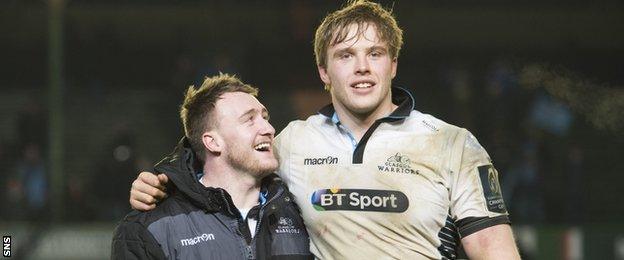
Glasgow captain Jonny Gray (right) scored his first try of the season against Leicester
This was powerhouse stuff and every Glasgow player turned up. Arguably the greatest visual, though? To be honest, it was vision and sound and it was mentioned by Townsend in the aftermath.
Every team that's ever gone on to do anything in Europe remembers a certain day that they look back on and say: 'That's when it turned.' Glasgow's newest foes, Munster, won two European crowns in 2006 and 2008, but seasoned watchers of the team would probably return to December 1999 to tell you about The Moment.
It was the first time they won in France, by beating Colomiers, the previous year's finalists. There wasn't a huge Munster crowd there, but there was enough of them.
It started something special, the butterfly effect. These people went back to Limerick and Cork and Tipperary and all points around the province and spoke of an 'I was there' day in France. The next time they travelled with Munster, many others went along with them. A gathering army. A sporting, and social, movement.
Glasgow's support in Leicester was terrific. From early on, the only sound you could hear coming from the stands was the noise of the visitors, the only colour you could see belonged to the away team.
Townsend saw it, appreciated it and reflected on it afterwards. It is not just the team that have advanced into the elite of European rugby, it is the fan base too. They are smaller in number than the truly big guns but mobilising all the same.
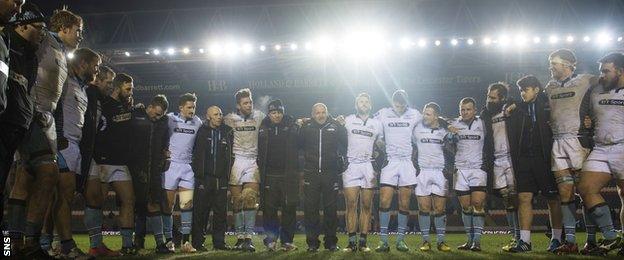
Gregor Townsend congratulated his Glasgow players for sealing a quarter-final place in Leicester
There will be more of them next time and, if the run continues, more again the time after that. That's how it works.
Those who watched the beginning of the Munster supporter phenomenon will tell you about the day, around 1997, when Munster and Leinster played an interprovincial match at Garryowen's ground in Limerick and the crowd was officially recorded as 200. Within four years, their rivalry drew 30,000, then 50,000, then 80,000.
Everybody wanted in on it. People who couldn't previously tell the difference between a flanker and a fly-half were suddenly buying the jersey and booking the trips.
It wasn't so much a love of rugby for the newcomers, it was about identifying with something positive. Fans are the greatest marketeers in existence. They spread the word. Everybody loves a winner.
Now Glasgow are winners too. They live in the heart of a football city, but they have doubled their support in a short space of time.
They have earned their place in the top eight of Europe and they're good enough to go again. There will not be a single member of their squad who will think that the job was done in Leicester. A job, yes. Not the job.
They have a quarter-final to come, away from home to either Munster or Saracens; arduous, but thrilling. They're where they want to be and where they deserve to be.
Darkness had fallen on Welford Road on Saturday night and still the strains of 'We Are Warriors' were heard around the ground. A team, and a support, are on the march.
- Published22 January 2017
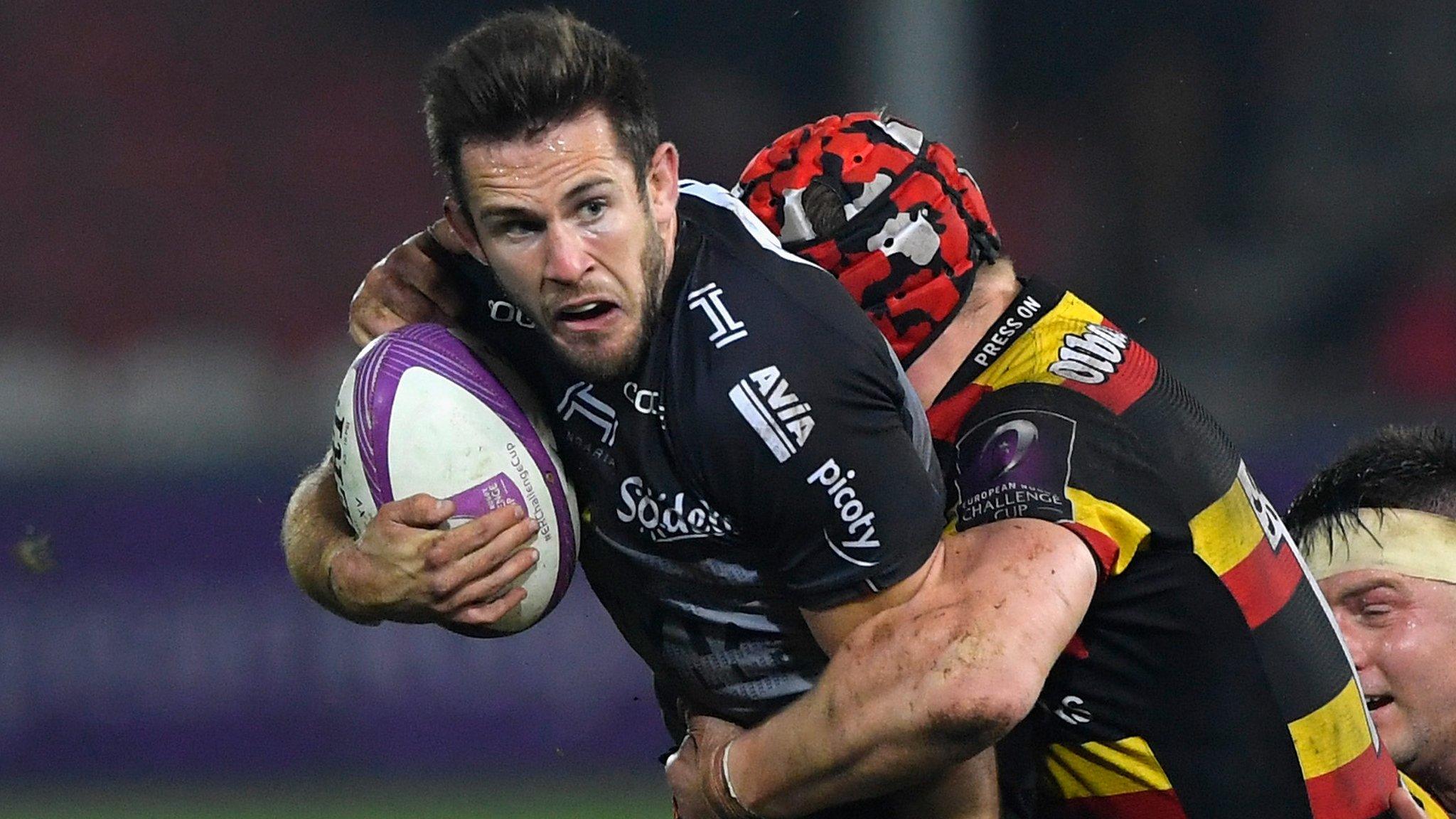
- Published21 January 2017
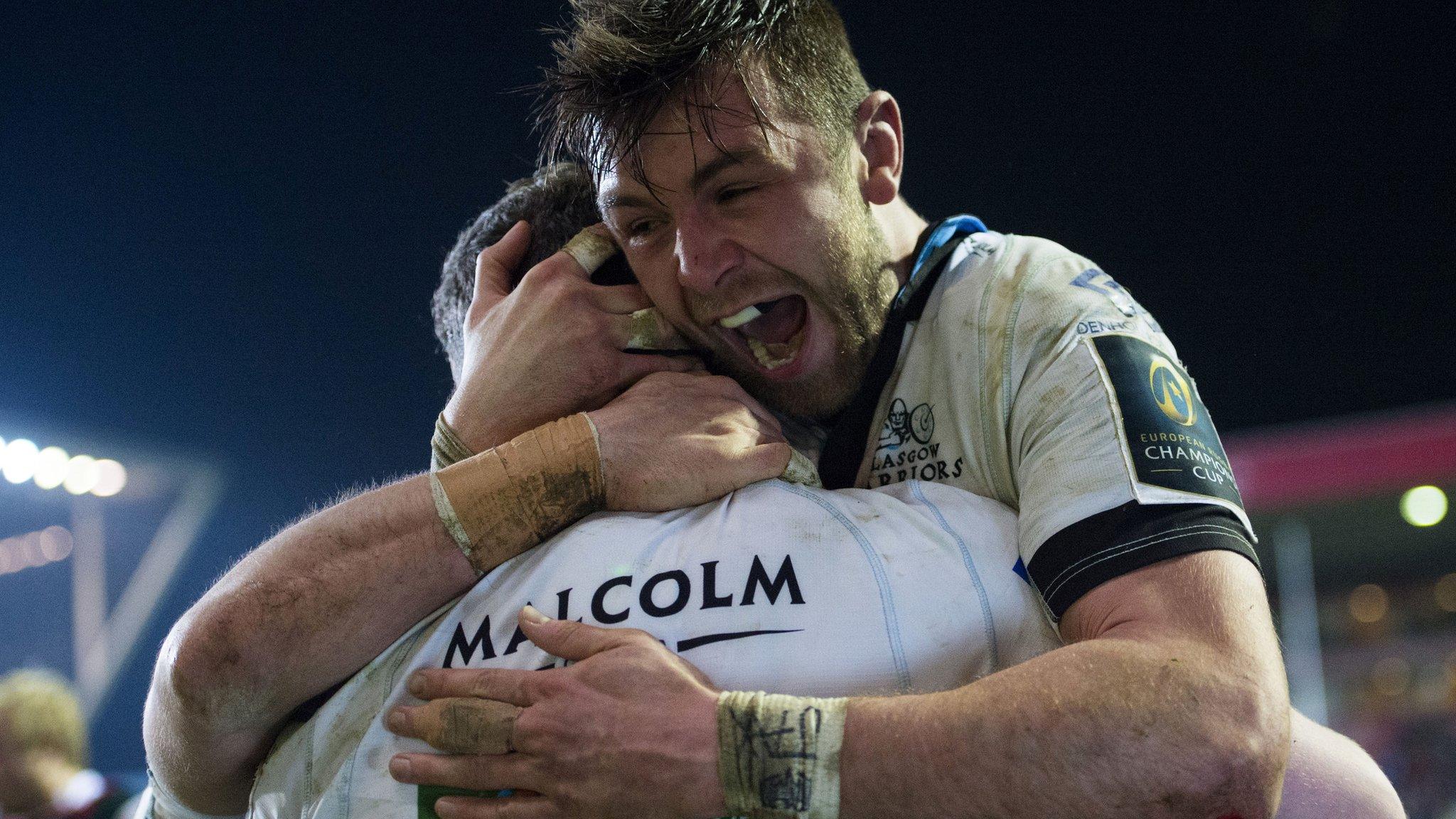
- Published21 January 2017
